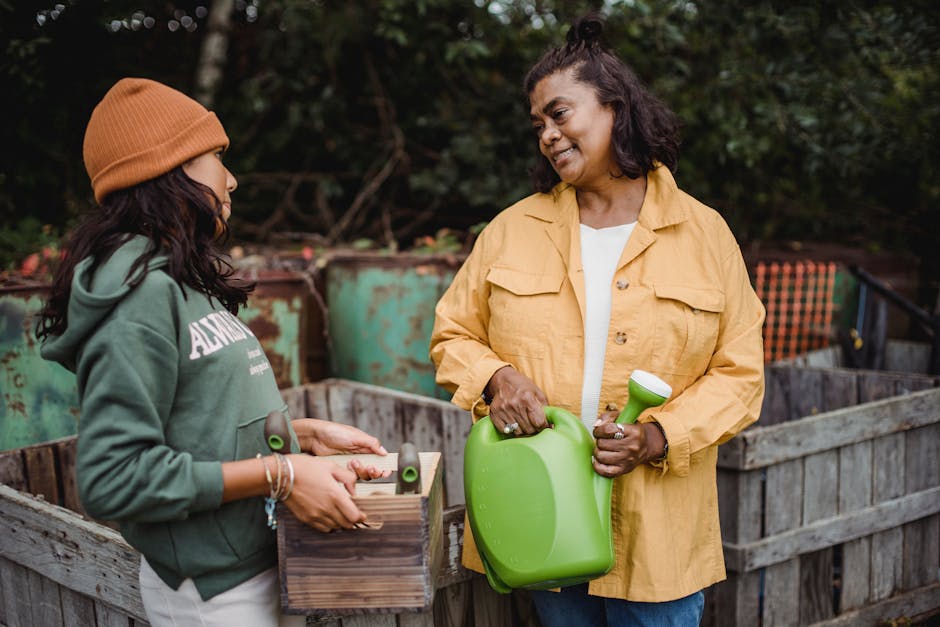Early Childhood Education Programs: Nurture Young Minds
When we talk about early childhood education, we’re diving into It’s not just about ABCs and counting to ten, it’s about laying a foundation that shapes how children perceive learning, social interactions, and themselves. These programs are a catalyst for unlocking potential, providing children with tools they’ll carry well beyond their first classroom.
Why Early Years Matter
Think of a child’s brain as an intricate sponge during those early years.

Research consistently highlights that by the time children turn five, their brains have developed up to 90% of their adult size. This is when neural connections are forming at lightning speed, influenced by what they see, hear, and experience daily. Without access to quality educational programs, these prime developmental windows may not be fully utilized.
Studies published by the Center on the Developing Child at Harvard University (Harvard University) show how enriched environments during early childhood can significantly enhance cognitive skills like problem-solving and memory retention. On the other hand, neglect or lack of stimulation during this period may result in developmental delays that are difficult to address later.
The Power of Play-Based Learning
When people think of education, desks and textbooks often come to mind. But in early childhood programs, play is often the star of the show. Why? Because play is how young minds naturally learn. Structured activities like building blocks teach spatial awareness and problem-solving, while unstructured play helps develop creativity and resilience. Think of a group of children working together on a puzzle, they’re not just fitting pieces together; they’re learning cooperation, communication, and patience.
Countries like Finland have embraced this philosophy wholeheartedly. Their early education systems prioritize play-based learning over traditional instruction until children are seven years old. Yet Finnish students consistently rank among the top globally in literacy and numeracy skills later in life (OECD). The message? Giving children room to explore through play fosters both immediate engagement and long-term success.
Social-Emotional Growth: A Hidden Curriculum
What often gets overlooked in discussions about early education is how much it shapes social-emotional development. Think about a classroom where kids take turns during show-and-tell or resolve disputes over who gets the blue crayon. These seemingly small moments help build empathy, self-regulation, and conflict resolution skills, attributes just as important as academic milestones.
For families juggling work and personal responsibilities, these programs also provide a supportive environment where children can develop meaningful relationships with peers and teachers. According to data from the National Association for the Education of Young Children (NAEYC), high-quality early education environments create a sense of belonging and security that fosters lifelong positive attitudes toward learning.
Overcoming Barriers to Access
While we can all agree on the benefits of early childhood education, access remains a challenge for many families. Affordability is often cited as a major hurdle (especially for low-income households) and geographic location can also limit opportunities in rural or underserved areas.
The good news? Several initiatives are working to close this gap. Head Start programs in the United States provide free early education services to children from low-income families. Internationally, organizations like UNICEF (UNICEF) focus on expanding preschool access in developing nations, recognizing its critical role in breaking cycles of poverty.
Even community-driven solutions are stepping up. In some areas, local libraries have transformed into hubs for educational activities like storytime sessions or STEM-based workshops for young learners. These grassroots efforts remind us that impactful change doesn’t always require sweeping reforms, it can start with small but meaningful steps right in our neighborhoods.
The Role of Families in Early Learning
While programs serve as vital support systems, families remain at the heart of a child’s educational journey. Simple daily interactions (like reading bedtime stories or talking about shapes during grocery shopping) play an enormous role in reinforcing what kids learn in formal settings.
Consider this: A study from Rutgers University (Rutgers University) found that children who were regularly read to at home displayed stronger language skills by age three compared to those who weren’t. What’s even more fascinating is that these effects were seen across socioeconomic groups, underscoring how accessible family involvement can be for everyone.
Parents don’t need advanced degrees or endless free time to make an impact, small actions truly add up over time. Whether it’s singing nursery rhymes or counting steps on a staircase together, these moments foster both connection and growth.
A Shared Responsibility
If there’s one takeaway here, it’s that nurturing young minds isn’t just the responsibility of schools or caregivers, it’s something we all have a stake in supporting. From advocating for policies that make early education more affordable to volunteering time or resources locally, there are countless ways to contribute.
After all, when we prioritize early childhood education as a collective effort, we’re not just investing in individual futures, we’re building stronger communities filled with curious thinkers and compassionate leaders.
